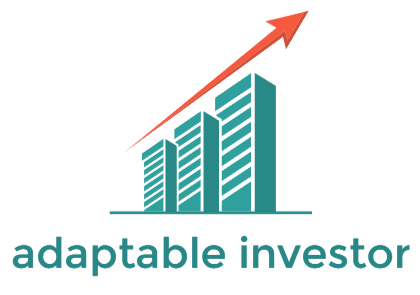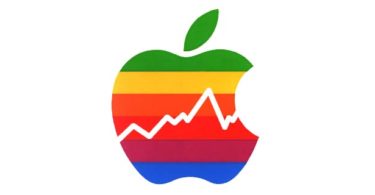In the never-ending random walk down Wall Street, we all look for that “Eureka!” moment. Artificial intelligence (AI) stocks have been causing quite a stir this year, convincing many investors that they have found the proverbial “It.”
But remember that all that glitters in Silicon Valley isn't digital gold.
Amid skyrocketing valuations, three of The Motley Fool's sharpest tech wizards have marked a trio of AI stocks that might need a reality check: C3.ai (AI), Palo Alto Networks (PANW), and Symbotic (SYM). These companies are leading the pack, but that doesn't make them unstoppable. So let's take a deep breath, slow our roll, and examine why these stocks might warrant a little extra skepticism in the summer of 2023.
This AI software stock has a lot of sizzle, but where's the steak?
Billy Duberstein (C3.ai): The AI boom appears much more real than other recent bubbles, such as crypto or meme stocks. Nevertheless, that doesn't mean certain stocks in the sector haven't gone way too far too fast.
C3.ai has rocketed a stunning 260% this year on the hype surrounding generative AI. However, that has led to the stock getting far ahead of an anticipated revenue inflection that may or may not materialize.
Sure, I may be missing out on a new disruptive software company, but it's also not clear how C3.ai is that differentiated from the slew of legacy software giants, new-age software-as-a-service (SaaS) companies, or start-ups involved in predictive analytics using AI.
I fully acknowledge that C3.ai is transitioning to a consumption-based model in which it engages with customers early, incurs costs, and then, later on, receives growing revenue as customers consume more and more services. However, the stock seems to be pricing in a revenue and profit acceleration that works out really, really well. After its run, C3.ai now trades at an eye-watering 17 times sales! That's really expensive and usually only appropriate for SaaS companies consistently growing 40% or more.
By contrast, C3.ai grew revenues by only 1.1% last quarter, while losses from operations worsened from -$56.5 million to -$73.3 million. And there's one other not-so-great stat: While the company touts positive free cash flow and “adjusted” numbers that strip out stock-based compensation, the company's stock-based comp reached $216.5 million in the year ended April 30 — nearly as much as the full-year revenue of $266.8 million!
Furthermore, C3.ai had 35% of those revenues coming from a single customer, Baker Hughes, giving C3.ai a big customer-concentration risk. With a high valuation, high stock-based comp, and high customer concentration, most of the new deals and opportunities management touted in recent weeks better pan out in a big way to justify today's stock price.
But even if they do, management recently disclosed a long-term target for “adjusted” (non-generally accepted accounting principles, or non-GAAP) operating margins at 20%. Given how high stock-based comp is and factoring in taxes, the company's GAAP net income is likely to be only in the low teens even at maturity.
After this year's massive run-up, C3.ai investors are taking on a lot of risk holding this particular AI name. But with many potential AI beneficiaries out there without the same risk profile, investors should perhaps look to other names to pay this technology revolution.
Palo Alto Networks is riding too high on AI
Anders Bylund (Palo Alto Networks): Network security expert Palo Alto Networks is soaring in 2023. The stock sets fresh all-time highs every week nowadays, gaining nearly 75% year to date.
The company is a leading authority in advanced network firewalls and cloud-based security solutions. Palo Alto even leaned into the AI space years before the ChatGPT firestorm of 2023. Its security software has been built around machine learning systems from the get-go.
The tools can also protect your company's systems from unknown and sophisticated attacks by learning the relevant data patterns and cranking out appropriate countermeasures on the fly. That's helpful in a world where hackers can rely on generative AI tools to come up with new attack vectors at the drop of a hat.
So it's easy to see why Palo Alto Networks' stock price is soaring. It's also easy to see that the Palo Alto rocket is flying a bit too close to the sun right now.
Palo Alto's shares are trading at nosebleed valuation ratios — such as 365 times adjusted earnings and 57 times the company's book value. From most perspectives, it is more expensive than Zscaler and SentinelOne, even though its top-line sales and bottom-line earnings are growing slower than these head-to-head rivals.
Mind you, I respect Palo Alto Networks and wouldn't mind picking up a few shares for myself one of these days. But the stock is overheated in the summer of 2023, and I'll gladly wait for a better buy-in opportunity. Even Warren Buffett would insist on buying this wonderful company at a fair price, but that's not what I see today.
So I'm hitting the pause button on Palo Alto Networks for now. Call me back when the stock price cools off a bit. I'm looking for a retreat of 30% or more before I can put real money into this market-darling stock.
Warehouse robotics is the real deal, but this stock is too hot
Nicholas Rossolillo (Symbotic): Warehouse robotics is incredibly promising tech, helping companies (e.g., Walmart, most notably, in the retail space) smooth out operations and save lots of money. Symbotic's AI-powered robots are flying off the shelves and getting installed in lots of customers' warehouses.
Now with plenty of revenue pouring in, Symbotic (which went public via special purpose acquisition company [SPAC] in early 2022) is no longer a start-up. Sales totaled $267 million in the last quarter, a 177% year-over-year growth rate, and the company says it has $12 billion in future revenue under contract with retail and logistics customers. Indeed, it would seem the hype surrounding Symbotic stock is well founded.
That doesn't mean the stock is a buy right now, though. The issue of valuation looks every bit as valid as Symbotic's quickly ramping sales pipeline. As of this writing, Symbotic is valued at a whopping valuation of nearly $25 billion. And since Symbotic operates at a loss on all counts at the moment — a net loss of $55.4 million and an adjusted earnings before interest, taxes, depreciation, and amortization (EBITDA) loss of $11.2 million last quarter — this is a tough one to stick an intrinsic value on.
But, as far as relative valuations go, based on analyst estimates for revenue of just over $1 billion this year, Symbotic stock trades for well over 20 times this year's expected sales. Though it's a fast company, suffice it to say it's a steep premium for one still losing money. If 2022 taught investors anything, it's that there's risk in overpaying for an investment.
What makes things even more problematic is that it appears Symbotic is starting to lose a little steam. For the next quarter, management's outlook calls for revenue of just $245 million to $265 million. Sure, that's well over double the $96 million in sales hauled in the year before, but it would be a sequential decline from the last reported quarter. It would seem the company is getting hit by the same 2023 economic worries as its retail customers are.
Don't get me wrong, as far as I can tell, Symbotic has a bright future. Perhaps momentum will pick up pace again in 2024. The stock is on my watch list. But I think shares have plenty of room for a cool-off. In the vast world of emerging AI, I'm fishing elsewhere at the moment.
Officially published on Fool.com





